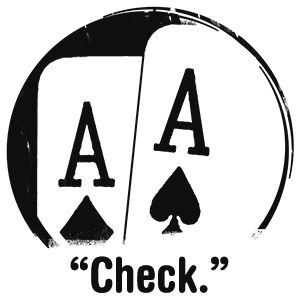Slow playing (also called sandbagging or trapping) is deceptive play in poker that is roughly the opposite of bluffing: betting weakly or passively with a strong holding rather than betting aggressively with a weak one. The flat call is one such play. The objective of the passive slow play is to lure opponents into a pot who might fold to a raise, or to cause them to bet more strongly than they would if the player had played aggressively (bet or raised). Slow playing sacrifices protection against hands that may improve and risks losing the pot-building value of a bet if the opponent also checks.
Against observant opponents, the frequency of bluffing affects the effectiveness of slow playing, and vice versa. If a player’s table image is that of an aggressive bluffer, slow playing is less important because his opponents will be more willing to call his usual bets and raises. Similarly, if a player is perceived as a ‘trappy’ player (uses frequent slow plays), his bluffs are less likely to be respected (i.e., more likely to be called) because his opponents expect him to slow play his strong hands. Fishing for the overcall occurs when the last card a player is dealt makes him a very strong hand, an opponent in front of him bets, and there are more opponents yet to act behind him. While the player might normally raise with his hand, just calling may encourage the opponents behind him to overcall when they would have folded to a raise.
The Daily Omnivore
Everything is Interesting



Leave a comment